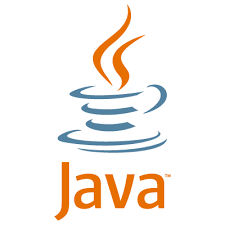
FREE Updates for Java 8 will end by Jan 2019,what are options ?
Java SE 8 was released on March 18th in 2014.Oracle JDK 8 would be undergoing the “End of Public Updates” process, which means there are no longer free updates/security fixes for commercial use post Jan 2019,
In this post,we explore different options before us.

- The OpenJDK community creates and maintains the (GPLv2+CE) open-source Reference Implementation (RI) of the Java SE Specification as governed by the Java Community Process (JCP) and defined through an umbrella Java Specification Request (JSR) for each feature release.
- Oracle OpenJDK build under the Open Source (GPLv2+CE) license and will follow the new six-month release cadence

Image – New Oracle OpenJDK Release Plan - For Personal Use :
- Security Fixes/Updates would be available through December 2020 for personal desktop use.
- Post 2020, You can continue to use Oracle JDK 8 indefinitely without updates or move to other Open JDK builds/Oracle JDK.
- For Commercial Use :
- There are No FREE Security Fixes/ updates for commercial use after January 2019.
- If you want to continue on Java SE 8 or previous versions post Jan 2019,you would need to purchase Java SE Subscription from Oracle which is about $25 per processor per month for server and cloud deployments.For Desktop price is about $2.50 per user per month.For more information, and details on how to receive longer term support for Oracle JDK 8, please see the Oracle Java SE Support Roadmap.

Image – Oracle Java SE Support Roadmap - You can switch to Java SE 9 or any of the equivalent Oracle Open JDK builds. OpenJDK builds follows six-month cadence with scheduled quarterly security updates.
- If you’re concerned about receiving updates/fixes on six-month cadence then you can consider switching to paid subscription on Oracle JDK.
- You can also switch to other Java SE / OpenJDK providers who provide either updates and/or paid support options
- If you’re not concerned about updates/fixes,you can actually build from source from any of them below (OpenJDK, no commercial support)
- Mercurial: http://hg.openjdk.java.net/
- Tarballs (7+): https://openjdk-sources.osci.io/
- AdoptOpenJDK: https://www.github.com/AdoptOpenJDK/openjdk-build
- Below are some of the Free Binary Distributions
- AdoptOpenJDK (check blog post here.)
- Azul Zulu Zulu® certified builds of OpenJDK are fully compliant with the Java SE standard
- Various Linux distros (like Ubuntu,Debian etc.,) will continue to provide OpenJDK builds
- Oracle OpenJDK builds
- SapMachine
- There are also OpenJDK binary distributions from an alternative OpenJDK providers, i.e. Linux distros, AdoptOpenJDK, Azul, IBM, Red Hat, and others.
There’s been considerable confusion post “End of Public Updates” note from Oracle but given the fact there lot of options,we just need to take right decision and move on.
References :
- Java Is Still Free
- End of Public Updates is a Process, not an Event
- Update and FAQ on the Java SE Release Cadence
- Oracle Java SE Subscription FAQ
Summary

Article Name
FREE Updates for Java 8 will end by Jan 2019,what are options ?
DescriptionPost Jan 2019,Oracle JDK 8 is undergoing the “End of Public Updates” process, which means there are no longer free updates/security fixes for commercial use. In this post,we explore different options before us.
Author
Karthik
Publisher Name
upnxtblog
Publisher Logo




Average Rating